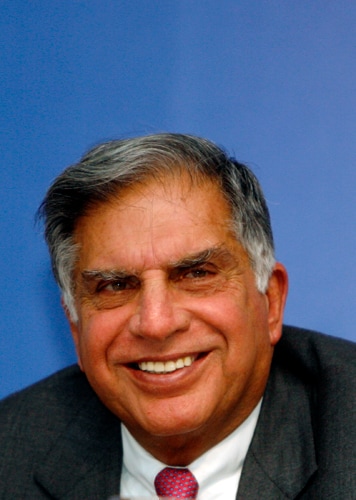
The World’s Top Thinkers of 2009
Whose ideas shape modern business and management practices? Presenting a Forbes India exclusive on The Thinkers 50, a ranking of global management thought leaders
Few management thinkers have the ability to come up with one winning idea after another. C.K. Prahalad is a rare exception. He has the remarkable ability to be ahead of the times. Look at any of his key ideas — be it core competence, co-creation or the bottom of the pyramid — Prahalad’s influence on the study and practise of management has been immense.
It is no wonder then that for the second time in a row, the Indian-born management guru has earned the distinction of being the most influential management thinker alive according to the Thinkers 50, a biennial ranking of the top 50 business and management thought leaders in the world, brought out by the UK-based Suntop Media. Prahalad first topped the Thinkers 50 in 2007, unseating the formidable strategy don Michael Porter. Malcolm Gladwell, the author of Tipping Point, Blink and the more recent Outliers, came in at No. 2, while Nobel Prize winning economist Paul Krugman came in at No. 3.
The 68-year-old Prahalad is on an exciting new journey these days. Having been an avid researcher for almost four decades now, Prahalad is looking for new knowledge at the intersection of various themes he has dealt with. “My research [these days] is focussed on innovation opportunities that lie at the intersection of inclusive growth [i.e. the bottom of the pyramid], sustainability, connectivity [a theme explored in the books The Future of Competition and The New Age of Innovation] and globalisation [again, a theme explored in The Multinational Mission]. This intersection will provide opportunities for new governance systems, and an ability to manage volatility,” says Prahalad. He believes that emerging countries like India can take a leadership role here if we focus on this new frontier.
Prahalad’s ascendance to the top of the list signals the growing influence of Indian management thinkers, a trend that first showed up in the 2007 ranking when four Indians — Prahalad, CEO coach Ram Charan, Tuck School of Business’ Vijay Govindarajan and Harvard Business School’s Rakesh Khurana — made it to the top 50.
This year, Indians have more to cheer about with a total of six Indians on the list. Apart from the original four, the two notable additions this year are senior leaders from India Inc.: Ratan Tata, CEO of Tata Industries, who makes his debut at No. 12, and Infosys co-founder Kris Gopalakrishnan, who comes in at No. 15. From the original lot, Ram Charan has moved up several slots from No. 22 to No. 13 while Govindarajan came down to No. 24 from 23 last year and upcoming leadership expert Rakesh Khurana moved up one slot to No 44.
The Indian brigade is making waves globally. For two years, Govindarajan handled the role of Chief Innovation Consultant at GE, a prestigious assignment for an academic. Says Govindarajan, “The GE assignment will shape my research agenda going forward. I want to push the thinking on the concept of reverse innovation — developing products in countries like China and India and marketing them globally.” His next book on reverse innovation will be out in 2010.
Khurana, on the other hand, after having explored the disastrous consequences of hiring “superstar CEOs” (the research that catapulted him to superstardom himself), is now focussing on the reform of MBA education, an area that is dominated by stalwarts like McGill University’s Henry Mintzberg and Stanford’s Jeffrey Pfeffer. His latest book, From Higher Aims to Hired Hands, explores the lacuna in management education. “My second area of focus is in the area of large institutional change, with a focus on leadership, globalisation, and addressing society’s most pressing global problems through the construction and reform of a new type of institutional leadership,” says Khurana.
Another Indian — London Business School’s Nirmalya Kumar — features in the list of ‘Thinkers shaping the future’, a bunch of people who aren’t on the ranking yet but have great potential going forward.
Apart from the growing influence of Indian thought leaders, this year’s Thinkers 50 shows some other interesting trends. This year’s ranking has 14 notable new entrants like Grameen Bank founder Muhammad Yunus (an impressive No. 6), Google’s Eric Schmidt, Nobel Prize winning economist Joseph Stiglitz, Rotman School of Management’s Roger Martin, Wired’s Chris Anderson, Black Swan author Nassim Nicholas Taleb, economic historian Niall Ferguson and Wikipedia co-founder Jimmy Wales.
The economic turbulence has had a bearing on the ranking, bringing to the forefront people such as Krugman and Stiglitz whose ideas now have even more takers. Also, as the ranking points out, “caring capitalists are the new heroes”, be it Prahalad’s idea of the Bottom of the Pyramid, Bill Gates’ concept of creative capitalism which borrows from Prahalad’s ideas to some extent, or Muhammad Yunus and the micro-credit revolution in Bangladesh which has spawned several new innovations.
Interestingly, 26 percent of the top 50 have entered the ranking for the first time. While people like Tom Peters, Jim Collins, Henry Mintzberg, Warren Bennis, Charles Handy and John Kotter still figure in the ranking, the newcomers are a welcome change. The world of management research could do with a fresh infusion of new ideas.





